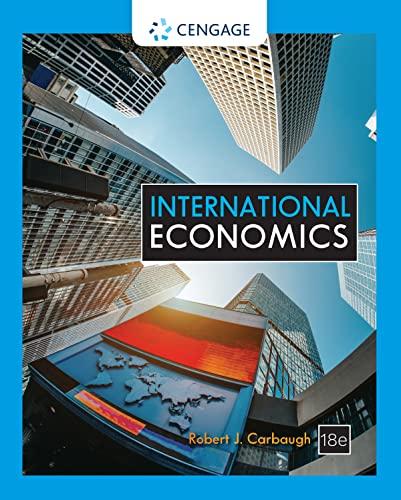From the 1980s to 2008, the discussion of the pros and cons of state-directed capitalism versus free
Question:
From the 1980s to 2008, the discussion of the pros and cons of state-directed capitalism versus free market capitalism appeared to be resolved. The robust performance of the U.S. economy, underlaid by deregulation, globalization, and free trade in conjunction with the breakup of the Soviet Union and China's embracing capitalism, affirmed the limitations of state-run economies. Free market capitalism was generally viewed to work better. However, the Great Recession of 2008-2009 reopened the discussion about the role of government in the economy. The severity of this economic downturn exposed the shortcomings of the advanced economies and resulted in many observers wondering whether the market capitalism model had crumbled. In the United States, Democrats wanted an activist government to create jobs and foster new industries, like wind power, to help America compete in the global economy. At the same time, Republicans wanted a smaller government to promote economic revitalization.
Government aid for economic development has tended to involve less controversy for developing countries. Countries such as Brazil, Malaysia, China, and Russia have favored "state capitalism" that integrates the powers of the state with the powers of capitalism. Under this system, governments create state-owned businesses to manage the development of factors of production that they deem to be of critical importance to the state and to create large numbers of jobs. Examples of state-owned businesses include communications firms in China, oil firms in Malaysia, and natural gas firms in Russia. Governments influence bank-lending policies, own essential sectors of the economy, and freely steer the economy through bureaucratic decision making. Although state capitalism is a type of capitalism, it is one in which government behaves as the major economic player. The ability of state capitalistic nations like China to achieve robust economic growth during the Great Recession has caused observers to ponder if this economic system can achieve better economic results than the freer market model of the United States.
The importance of state capitalism is notable. In China, the government is the largest shareholder of the country's largest businesses. Also, state companies account for about 80 percent of the value of the stock market in China, 6 percent in Russia, and 40 percent in Brazil. The 13 largest oil firms that control three-fourths of the world's oil reserves are all government backed. So is Russia's Gazprom, the world's largest extractor of natural gas.
Although state capitalism is an alternative to market capitalism, it has its limitations. State giants utilize capital and talent that might have been used better by private companies. Also, although state firms have sometimes succeeded in imitating others, partly because they can use the government's influence to obtain access to technology, they often have been less successful in promoting new technological innovations. Finally, state capitalism operates well only when run by competent government officials, which sometimes does not occur. This economic system can result in inequality, favoritism, and discontent, as seen in Egypt and Russia.
So who is on the right side, state capitalism or free market capitalism? History shows that every economic miracle eventually loses its luster as youthful exuberance gives way to economic maturity. As countries progress from agriculture and crafts to manufacturing and then to a service and knowledge economy, what rises comes down and levels out. During this evolution, the countryside empties out and no longer provides a seemingly infinite supply of cheap labor. Also, as fixed investment increases, its marginal return decreases, and each additional unit of capital fosters less output than the preceding one. This is one of the oldest principles in economics-the law of diminishing returns. The future success of state capitalism, as a model for economic development, remains an open question.
What do you think? Should we have state capitalism or free market capitalism? Why?
Step by Step Answer:






